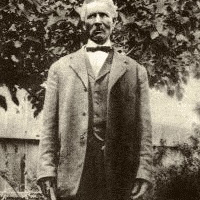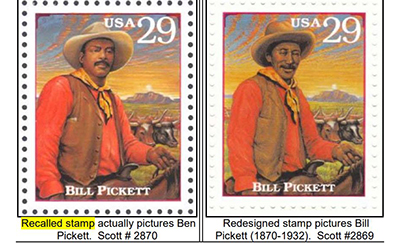The True West: America’s Black Cowboys
Black cowboys and their stories inspire mainstream media like Corsicana, The Harder They Fall, Concrete Cowboy, and most recently, Nope...and as long ago as…The Lone Ranger.
But who were they and what makes their stories important?
Black Cowboys: Born of Necessity
Black “cowboys” were born out of necessity, out of a radical reconstruction of our country’s systems. In an effort to leave the ghosts of the Civil War and slavery behind, many Black men headed west after Congress passed legislation to increase infantry and cavalry regiments in 1866.
The term “cowboy” is most associated with the skill of cattle handling, or interacting with cows and other livestock to train them up, often to herd them to various parts of the country or provide labor and produce. And many ex-slaves had learned these skills before emancipation. From growing crops `besides cotton, to caring for livestock, to maintaining fields or destitute buildings on the property, many of these men were already Black cowboys in the making.
Black Cowboys’ Great Migration
As the country sought to rebuild, freed slaves and others migrated from the south to the west, taking the opportunity to reclaim their sense of identity and start anew. Texas would become the center of the cattle frontier industry, providing thousands of recently freed slaves with work.
But life wasn’t like the movies.
Despite their efforts to drum up a better life, there was still resistance from white people to truly accept Black people as free. Many Black men experienced limited employment opportunities and rampant discrimination (they could not eat at certain restaurants nor stay at certain lodgings). Many were also engaged in battling other people of color – the Native Americans who were simply defending their lands before being confined to reservations.
In addition, many Black men, as cowhands, endured unforgiving weather under white leadership as they rounded herds of cattle on horseback around the country to trade centers. “Freedom” out west came at a price.
But with a price came a legacy
What emerged out of this time of rapid expansion were a number of household names that still make ripples in west-forward narratives. Such names of prominent cowboys include Nat Love (known for his roping, bridling, saddling and shooting skills and most famously depicted in The Harder They Fall – learn abut the film here), Bill Pickett (the most prominent Black rodeo rider and the pioneer of “bulldogging”), Bass Reeves  (at left,) a respected sharpshooter, the first first black deputy U.S. marshal west of the Mississippi River – and the inspiration for The Lone Ranger. He’s the lead character in the recent Western, Corsicana; See the trailer below.
(at left,) a respected sharpshooter, the first first black deputy U.S. marshal west of the Mississippi River – and the inspiration for The Lone Ranger. He’s the lead character in the recent Western, Corsicana; See the trailer below.
Another famous name is Bose Ikard (the leader of cattle driving, pictured below, right),  among many more. While this trade is dominated by men, Black women cowgirls have also been a part of this history.
among many more. While this trade is dominated by men, Black women cowgirls have also been a part of this history.
Bill Pickett has several claims to fame. Besides being the inventor of Bull Dogging, a film star (watch this report with a few clips of him in action), and his membership in the National Rodeo Cowboy Hall of Fame in 1971, he was the subject of the only USPS stamp that generated a recall due to an error. (The artist worked from a photo that incorrectly identified his brother as him.) See the comparison below and read the story here.

Black Cowboys Today
In today’s world, Black cowboys are still a force, and are being recognized. In Jordan Peele’s Nope, a brother and sister duo reclaim the warped narrative of the “wild west” by exploring the tokenization of Black people and the revival of frequently overshadowed stories through a refreshing sci-fi landscape.
Here’s a peek:
In Concrete Cowboy, a film about a rebellious teen who is sent to live with his estranged father and their community of Black cowboys in Philadelphia, we learn about the The Fletcher Street Urban Riding Club, an organization dedicated to preserving and bringing horsemanship in the Black community.
Myrtis Dightman – aka “the Jackie Robinson of Professional Bull Riding” – continues in the footsteps of Bill Pickett by being the first African-American to compete in the National Finals Rodeo.
Want to Learn more?
Learn more about how these Black pioneers continue to shape the culture and history of the American West by visiting your local library and checking out “In Search of the Racial Frontier: African Americans in the American West”, “Black Frontiers: A History of African American Heroes in the Old West”, “The Confessions of Nat Turner”, “Ghetto Cowboy”, or consider watching The Harder They Fall and Concrete Cowboy on Netflix. Nope can be purchased in store or rented via Amazon Video.
Want to learn more about Black History in the Old West? Check out our story on Buffalo Soldiers here.
 NaBeela Washington, an emerging Black writer, holds a Master’s in Creative Writing and English from Southern New Hampshire University and Bachelor’s in Visual Advertising from The University of Alabama at Birmingham. She has been published in Eater, The Cincinnati Review, and others. Learn more at nabeelawashington.com.
NaBeela Washington, an emerging Black writer, holds a Master’s in Creative Writing and English from Southern New Hampshire University and Bachelor’s in Visual Advertising from The University of Alabama at Birmingham. She has been published in Eater, The Cincinnati Review, and others. Learn more at nabeelawashington.com.
Photos: (Top) Black Past
Bill and Ben Pickett: Renostamp.org
Bass Reeves: The Western History Collections at the University of Oklahoma Library have a copy of this image in their holdings.
Bose Ikard: Texas State Historical Association
Ladies and gentlemen, I am happy to announce that it’s that time of year again! That’s right. It’s time…
Copyright © 2024 Retiring & Happy. All rights reserved.








